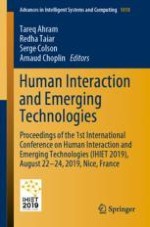2020 | OriginalPaper | Chapter
Investigating the Relationship Between Students’ Preferred Learning Style on Their Learning Experience in Virtual Reality (VR) Learning Environment
Authors : Shiva Pedram, Sarah Howard, Ken Kencevski, Pascal Perez
Published in: Human Interaction and Emerging Technologies
Publisher: Springer International Publishing
Activate our intelligent search to find suitable subject content or patents.
Select sections of text to find matching patents with Artificial Intelligence. powered by
Select sections of text to find additional relevant content using AI-assisted search. powered by
